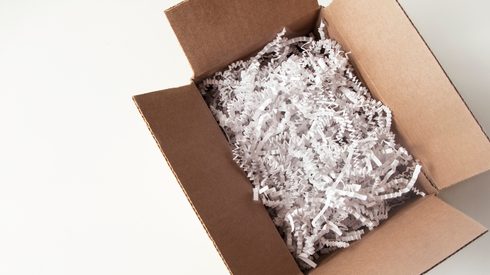Amid growing demand for alternatives to single-use plastic, key packaging paper producers in Latin America – such as Suzano, CMPC and Klabin – have accelerated their innovations and set goals to offer new fiber-based materials that can replace plastic.
Companies are focusing on the development of linings that resist grease, humidity and/or liquids, as well as on offering new alternatives in boxboard and flexible packaging.
These innovations by the paper industry come in response to an increasing number of new legislations banning single-use plastics. In Latin America, Chile and Peru already have nationwide bans on the use of disposable plastic containers and bags.
Flexible packaging
Brazilian pulp and packaging producer Klabin in May launched its low-basis-weight paper for flexible packaging, with the company estimating the market’s size at 7 million tonnes per year globally.
We noticed strong demand growth recently, as the market shifted to a new level [of interest in paper packaging] due to efforts on plastic substitution.
Klabin is using its installed capacity for unbleached extensible sack kraft paper to produce the new grade. The machines typically produce paper in basis weights in a range of 70-90 grams per square meter and are now producing 60 g/m² as well.
Klabin’s flexible packaging solution can reduce the final use of plastic in packaging by an average of 70%, Dalmasi said, noting that there may be times when the final packaging still requires a plastic film or bag to be used as well as paper.
The markets served include the processed food and hygiene sectors, with products used in packaging for products such as pasta, cereals and soap.
Suzano also has been targeting the flexible packaging market recently. The Brazilian pulp and paper producer is diversifying into packaging and aims to produce 60,000 tonnes in 2022. That number includes products the company has developed over the last three years, such as linerboard and flexible packaging papers, both produced with hardwood pulp.
“Flexible packaging is one of the areas with greater growth opportunities,” Suzano’s technology and innovation director Fernando Bertolucci told Fastmarkets after the launch.
Food packaging
Aside from offering new paper solutions, companies are focused on developing technology for barriers to grease, humidity and water, which is key in the efforts to replace plastic.
Paper producers see a big opportunity ahead in the food service industry, with plastic and Styrofoam food containers increasingly becoming a thing of the past.
In 2021, Chilean group CMPC developed boxboard packaging that features a 100% compostable and biodegradable greaseproof barrier, targeting plastic substitution in the fast-food industry. The product has been approved by the US Food and Drug Administration (FDA) for direct contact with food.
When it launched its greaseproof boxboard, CMPC told Fastmarkets that the segment was relatively new to the company but added that it projected strong growth.
We do expect this segment to keep on growing in the future, mainly driven by a change in consumer habits and plastic. Several local and global brands have decided to use paper in their delivery logistics.
In a different project, Klabin is investing in new barriers to reduce plastic usage by clients from its boxboard business. The company recently invested 40 million Reais ($7.8 million) in the refurbishment of barrier coating equipment at its Monte Alegre unit, in Telêmaco Borba, Paraná state. The equipment will be fully operational by July and will allow Klabin to apply barriers to 60,000 tonnes of boxboard products per year.
Barriers being tested include materials made from both renewable and non-renewable sources, Klabin’s paper business unit director Flavio Deganutti said, adding that the company is not revealing details about the materials used.
Klabin’s Deganutti said the company already has “well-developed” barrier solutions for paper cups and frozen food, and is now “extremely focused” in the food-delivery segment. “Food-delivery packaging can bring such a strong demand, and the paper industry doesn’t even have an idea of the scale of it,” the executive said.
The CEOs from Suzano, Klabin and CMPC Biopackaging will be speaking at the Forest Products Latin American Conference 2022, running August 8-10, in São Paulo this year. Along with other industry leaders, they will be discussing the latest trends in the pulp, paper and packaging markets and address sustainability in the industry. Head to our event page to find out more.







